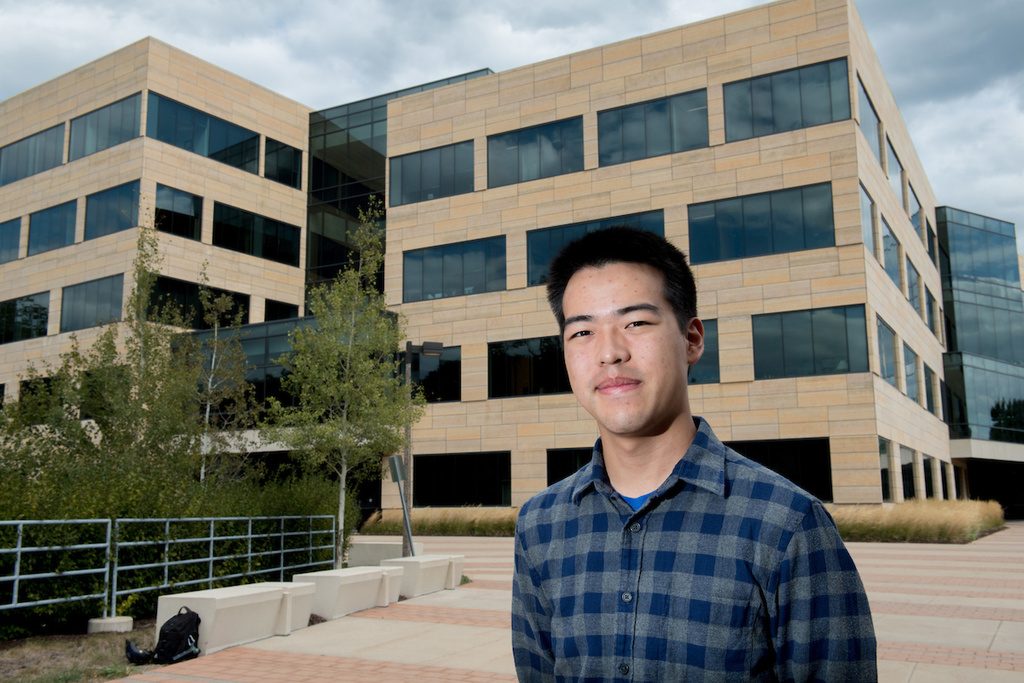Even in high school, Mikaela Mikkelsen knew she wanted to pursue a career helping people live healthier lives. But an aversion to blood meant that she was not going to be a doctor or a nurse.
So, when she received an email about the University of Iowa College of Public Health, she decided to look into it.
“I found that public health is all these things you don’t think about,” says the Eldridge, Iowa, native. “Clean water, healthy food, safe sidewalks. And they showed how all of those things work together to create healthier lives for us all.”
And best of all, no blood—so she decided a career in public health was what she wanted and came to the UI in fall 2016 as one of the inaugural students in the College of Public Health’s undergraduate program. Now in its second year, the sophomore class has 40 undergraduate majors who are joined this year by 34 new first-year students, according to Margaret Chorazy, clinical assistant professor of epidemiology and director of the undergraduate program.
The undergraduate major was started in part because of an increasing need for professionals working in public health fields. Chorazy points to studies from the U.S. Department of Health and Human Services and Centers for Disease Control and Prevention that predict an increased need for public health workers in the future, in part because the current workforce is nearing retirement age. The reports also note that only 20 percent of public health workers have formal education in the field. Similarly, a report from the Association of Schools and Programs of Public Health projects a shortage of 250,000 public health workers by 2020.
Few Midwest universities offer an undergraduate public health program. Since the UI has offered graduate programs in public health for decades, Chorazy says it made sense for the college to draw from its vast resources and experience to offer the only public health major by an accredited school of public health in the state.
Once the program was started, Chorazy says the biggest challenge was explaining to students what public health is. It’s a wide-ranging field that covers numerous topics, including but not limited to encouraging anti-smoking efforts and healthy eating habits, ensuring safe conditions in the workplace and safe roads for bicyclists, combating substance abuse and making sure air and water are free from contaminants.
“Public health is about protecting and promoting health in people’s everyday lives—at home, at work, at school, and at play,” says Chorazy. “But not many students know what public health is, so there’s a lot of education that needs to happen up front. We heard prospective students say that after learning more about public health they finally knew what to call the career that they’ve always been interested in.”

Chorazy says the college will add about 25 new courses to the undergraduate curriculum by the time the cohort graduates in 2020 and also is starting a variety of academic support and career-development programs to help students succeed in the classroom and prepare for the future. Chorazy says that many students likely will pursue careers in public health at various governmental levels or work for nonprofit groups or nongovernmental organizations with a public health mission. Others may pursue graduate or professional degrees in public health and the health sciences or apply what they have learned to nontraditional careers.
While Mikkelsen hasn’t yet set her career objectives, she interned this past summer with the Scott County Health Department in Davenport, Iowa. She worked with a variety of units to gain an understanding of what the department does and also performed an analysis of restaurant inspections to make sure inspectors were properly following up on establishments that received poor reports and were taking the proper enforcement actions against them.
“Everyone I worked with was amazing,” she says. “It was a great opportunity learn about the setting I’ll be working in in the future.”
The College of Public Health also offers an undergraduate-to-graduate degree that allows students at the UI and other select colleges in Iowa to receive both an undergraduate and master’s degree in five years instead of six.
Austin Wu says that option is what attracted him to the major; he hopes to pursue a career in public health policy in which an advanced degree is often helpful.
“Public health policy provides the ability to change things broadly,” says the sophomore from Cedar Rapids, Iowa. “A single piece of health care legislation can help millions of people.”
Wu says he’s particularly interested in the effect that urban and regional planning has on public health.
“I plan to study how our built environment affects our health because so much of our environment is outside of our control yet has a large impact on our health,” he says.
Editor's note: An earlier version of this story reported 33 first-year students.